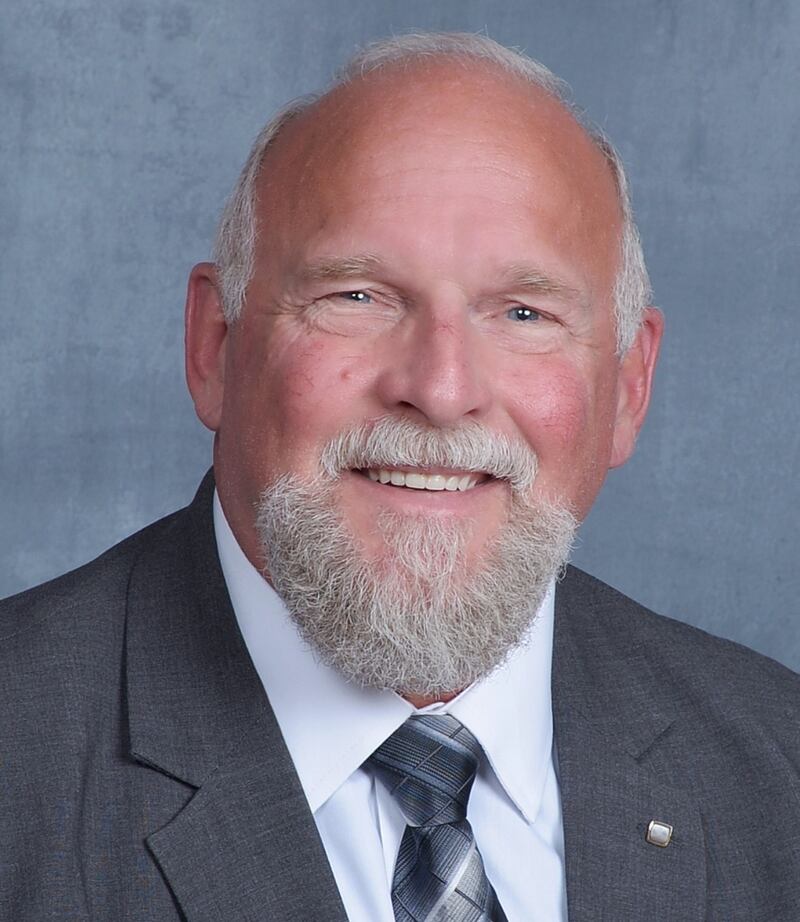Fall is the time of year when leaves turn vibrant colors, the air cools and the days grow shorter. In the Sauk Valley region, fall is a colorful season. There are many tree-lined roads and rivers to drive along on a Sunday afternoon to enjoy the scenery.
After a quick and lively Sunday afternoon drive, I sat down at the computer to catch up on the latest Illinois legislation news. My Sunday afternoon excitement quickly faded.
I read that the Illinois legislative fall veto session is scheduled for Oct. 14-16 and 28-30. During this fall veto session, the General Assembly is expected to address transit funding, energy and grid reform, and property insurance, among other issues.
According to The Center Square, a news organization that reports on state and local government activities, the Illinois fall veto session will address the issue of creating a revenue source to fund the Chicago metro transit systems through a service tax.
This new tax proposal has been on the docket for several months now and was rejected by a bipartisan effort to block the bill during last spring’s legislative session. It slid back again for another review by our legislators.
This new tax proposal will levy charges on services provided by accountants, barbers, hairstylists and others. Essentially, any service performed in Illinois will be subject to this new tax. We definitely don’t need additional taxes in the Sauk Valley area.
I supported the sales tax hike for the Whiteside County 911 program because it offers life-saving services to residents. However, I am among many who oppose increasing taxes on myself or others to fund a transportation network in the greater Chicago area.
Taxing professional services unfairly burdens taxpayers, especially the working class, who won’t benefit from this tax unless they use the Chicago land transportation network. Not many of us in the Sauk Valley region ride the Chicago Metro every day.
Now, for those of you in the Sauk Valley area who need to use that transportation system for work or fun, go ahead and pay more for your access. But don’t make the residents of the Sauk Valley area cover the cost for your use.
I mean, I don’t expect anyone to pay my Uber usage tax here in Sterling when I need to go somewhere. And, yes, we do tax Uber rides in Sterling.
Let’s flip the switch now to discuss energy reform (pun intended).
The upcoming fall veto session is also expected to focus on the Clean and Reliable Grid Affordability Act. This act aims to establish new guidance and regulations for various clean energy issues.
The issue of energy storage has emerged due to insufficient electrical grid infrastructure, which has become evident with the growth of solar and wind power generation.
As these new power sources came online, energy experts quickly realized they lacked the capacity to handle the additional energy these green sources produce. To bring these new power sources online, they need to find ways to store that energy while waiting for it to be used.
New regulations and incentive programs may help to resolve this issue.
The issue of grid modernization has become clear with the growth of solar farms across the state. In the Sauk Valley area, one of the main challenges of building solar farms has been their placement on fertile farmland near power grid connections.
The main reason that these local solar farms are going up on fertile farmland is that these locations are often closer to the power lines that can carry the energy created by solar farms.
It’s cheaper to build a solar farm on prime farmland near a three-phase power line than on the back forty, half a mile away. The solar farm sirens will sing otherwise, but that is the plain, simple truth. Power grid modernization might solve that problem and create opportunities to build solar farms on land that’s not top-rated crop land.
The issue of data centers is another growing concern in the Sauk Valley region.
These data centers, once considered job creators and revenue generators, are telling a different story.
Recently built data centers have shown that they use large amounts of water for cooling. They also generate a lot of noise pollution and need so much energy that newer designs now include their own power sources.
The Clean and Reliable Grid Affordability Act may adequately resolve this issue and others, addressing problems like energy storage shortages, the need for grid modernization, and data center regulation.
Regarding property insurance, many property owners have experienced a rise of up to 25% in insurance costs over the past year. Any legislation that could regulate these increases is welcomed relief.
I’m not going to fault my local insurance agent, but I will willingly scold the fifth-floor executives who these days don’t seem to care as much about the customer as they do about the company shareholder.
The fall season brings a palette of color, scenery, and joy to many. Hopefully, this upcoming General Assembly veto session will bring as much joy and relief to the taxpayers as well.
Jim Wise is a Sterling city councilman.
